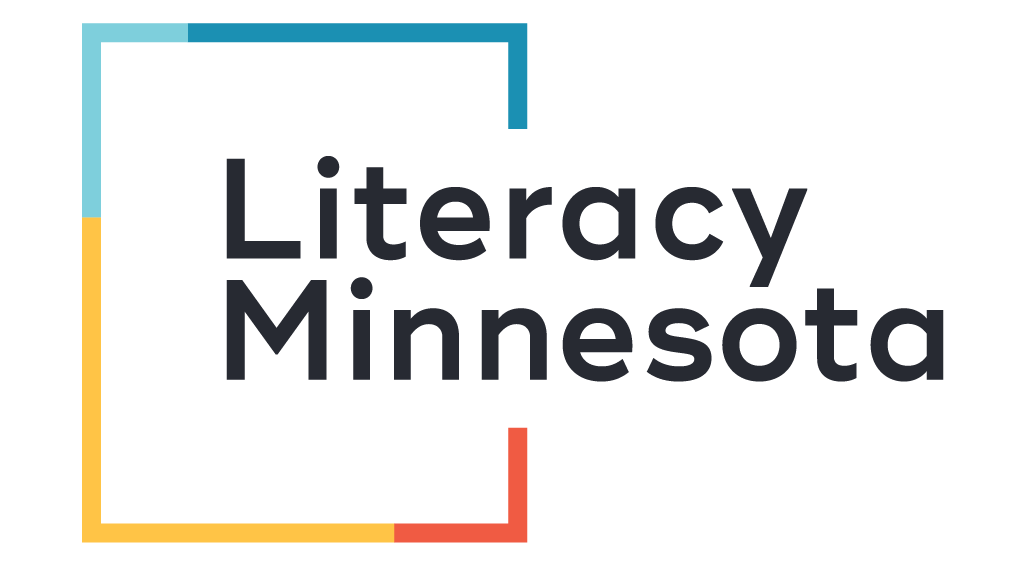- MN ABE Connect
- Archive
- Remote Tutoring Using Volunteers at the Franklin Learning Center
 June 22, 2020
June 22, 2020
Remote Tutoring Using Volunteers at the Franklin Learning Center
Wendy Roberts, Volunteer Outreach and Hotline ManagerThe staff at Franklin Learning Center (FLC) are no strangers to navigating change. Their Adult Basic Education (ABE) program had been closed since October for renovations and staff were reassigned to other work. After delays in construction, they were scheduled to reopen in March on the same day Hennepin County Library announced the closure of libraries due to COVID-19.
FLC is a one-room schoolhouse located in the Franklin Library in south Minneapolis. They offer an open lab classroom setting where adult learners can drop in to work one-on-one or in small groups with volunteer tutors. Mariah Wika, Adult Basic Education Instructor, and Milo Weil, Interim Director, joined the Using Volunteers webinar hosted by Literacy Minnesota on May 20th to share how they quickly mobilized their volunteers to provide remote tutoring to learners during the pandemic.
Using Remote Volunteer Tutors During COVID-19
 FLC is currently offering virtual citizenship tutoring at set times each week. Students and volunteers log in at the same time using the same link. FLC staff then pairs students with volunteers in breakout rooms. At the beginning of the process, two volunteers were paired with one student. This gave tutors a chance to acclimate to the virtual system with the support of another volunteer. As student attendance has increased and volunteers have become more comfortable with tutoring online, the FLC has shifted back to a one-on-one tutoring model.
FLC is currently offering virtual citizenship tutoring at set times each week. Students and volunteers log in at the same time using the same link. FLC staff then pairs students with volunteers in breakout rooms. At the beginning of the process, two volunteers were paired with one student. This gave tutors a chance to acclimate to the virtual system with the support of another volunteer. As student attendance has increased and volunteers have become more comfortable with tutoring online, the FLC has shifted back to a one-on-one tutoring model.
FLC recently launched their remote GED program. Students are matched based on availability and subject preference with a dedicated tutor. They work one-on-one with their tutor twice a week. The FLC schedules and facilitates meetings, but students and volunteers have the freedom to decide when they’d like to meet. Lastly, a few volunteers are assisting FLC staff in developing and adapting curriculum to use in remote tutoring. In total, FLC has onboarded 45 citizenship tutors and 22 GED tutors for their remote tutoring program.
Onboarding
When it comes to starting a remote tutoring program, FLC recommends starting out small. They began by contacting a group of experienced tutors (lead volunteers) for feedback. Many of these tutors also had experience with virtual tutoring. FLC shared their plans for remote tutoring, asked for feedback and made adjustments as recommended by the lead volunteers.
Next, they scheduled several virtual information sessions at various times for the rest of their current volunteers to explain their remote tutoring plan, help volunteers understand what remote tutoring entails and provide technology training. FLC staff also offered extra one-on-one training sessions for volunteers who needed extra help with technology and lead volunteers stepped in to assist as needed.
Benefits and Challenges
There are many benefits to remote tutoring for students and volunteers, from convenience to flexibility to eliminating geographical boundaries. For volunteers, remote tutoring allows them to remain connected to learners and engage with their community in a meaningful way. “A lot of our volunteers have been doing this for years and it’s a big part of their routine. Right now, this is a really important time to still feel like you’ve got a solid sense of purpose,” explained Mariah. “Volunteers tell us it’s the highlight of their week.” Remote tutoring provides connection and community for volunteers, learners and staff.
Remote tutoring also comes with challenges. While most have become comfortable with using technology, it is one of the biggest challenges of remote tutoring for volunteers at FLC. Some volunteers have needed extra one-on-one training sessions to become familiar or comfortable with using technology, and staff have needed to provide troubleshooting. However, volunteers who struggled with technology have remained persistent. Additionally, there were some volunteers who were simply not interested in remote tutoring because they prefer in-person tutoring. “We let those folks know that they’re still valued and whatever the other side of this looks like, we’ll be excited to see them,” Mariah shared.
Tips for Remote Tutoring
FLC staff had many helpful tips to share:
- Rehearse every aspect of your system, practice more than you think you need to and have clear roles for staff before volunteers and students enter.
- Simulate the volunteer and student experience using every platform (phone, computer, tablet, etc.) volunteers and students might be using, and learn what buttons are called and where they show up on devices.
- Create space for honest feedback from volunteers and students.
- Communicate promptly and reliably with volunteers and students.
- Have faith in your volunteers and students. They really can do this with your help!
From navigating site construction to pandemic closures, FLC has quickly and skillfully shifted gears once again to mobilize their staff and volunteers to provide essential remote tutoring services to adult learners. Thank you, FLC, for all you do to support literacy! For more information about FLC, visit https://www.hclib.org/flc.
Also, watch the Using Volunteers webinar and hear from other remote tutoring leaders in ABE.

Newsletter Signup
Get MN ABE Connect—the official source for ABE events, activities, and resources!
Sign UpArticle Categories
- ABE Foundations/Staff Onboarding
- ACES/Transitions
- Adult Career Pathways
- Assessment
- CCR Standards
- Citizenship
- COVID-19
- Cultural Competency
- Digital Literacy/Northstar
- Disabilities
- Distance Learning/Education
- ELA
- Equity/Inclusion
- ESL
- HSE/Adult Diploma
- Listening
- Math/Numeracy
- Mental Health
- Minnesota ABE
- One-Room Schoolhouse/Multilevel
- Professional Development
- Program Management
- Reading
- Remote Instruction
- Science
- Social Studies
- Speaking/Conversation
- Support Services
- Teaching Strategies
- Technology
- Uncategorized
- Volunteers/Tutors
- Writing